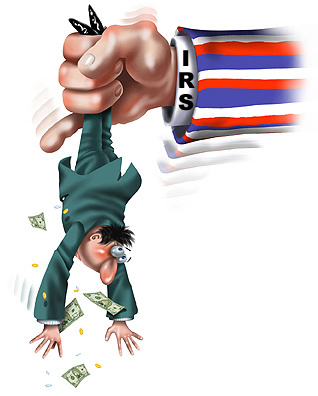It is apparently a mystery to a lot political insiders why the Tea Parties have become so popular with so many Americans in state after state across the nation.
Many have simply tried to dismiss the phenomena as the ranting of a relatively small number of angry right-wing zealots. They are dead wrong but one gets the feeling the political class finds this easy dismissal far more comforting than the unsettling truths driving angry and vocal dissatisfaction by people from across the political spectrum.

“Real people” like me resonate in politics right now because of the growing chasm between what the political elites of both parties see as the best course for the nation–and for themselves– and the hopes and fears of the average American man and woman. In China that difference might mean very little to government as we saw in Tiananmen Square but, according to the Founding Fathers, such a division should not even exist here in the United States.
Those who are passionately protesting at Tea Parties and making themselves felt at the polls have rightly detected more than a hint of contempt for the average citizen. If everything were going well such elitist arrogance might be accepted, as it has been in the past. But things are not going well for our nation and more and more people are challenging the performance, ideas and motivations of those who hold themselves out as smarter and better than the rest of us.
Can a plumber or carpenter, housewife or truck driver (clutching their bibles and guns as Mr. Obama once sneered) have anything much to add to the public policies developed at the seats of government and financial power? To those of us “out here” the righteously indignant answer is “yes”–and not a moment too soon.
To understand the Tea Party perspective, political elites will have to come to understand that they are seen as having failed us. Whether it’s “Brownie’s” “great job” after Hurricane Katrina or the recent “system worked” remarks by Janet Napolitano or the tax problems of various government leaders (including the chairman of the House committee writing tax laws), we feel betrayed. This judgment is actually directed at politicians on both the right and the left. The arrogant and often contemptuous “smart guys” have saddled us with failure after failure and now seem bewildered that people are so angry.
Have political insiders given us a Social Security and Medicare system with more than $100 trillion in unfunded liabilities? Yes. Did the “successful” job stimulus program really end up costing more than $200,000 per low level job? Yes. Did we get help with usurious mortgage and credit card rates and life wrecking job losses caused, in truth, by bad government? No. Does the public education system really produce 50% and higher drop out rates in almost every major city? Yes. Does the unfathomable income tax system really cost us more than $300 billion a year in tax preparation expenses? Yes. Has spending billions of dollars to confiscate blue-haired ladies’ knitting needles and millions of pocket knives and lighters stopped terrorist bombers? No. And to many of us, the answer to everything is not shifting more of the fruits of our labors to the 40% of the population who pay no income taxes at all.
If all politics is really local, consider Washington D.C.’s abysmal public education record. The political clout of teacher’s unions saw the school choice program there dismantled last year even though it was working very well and wildly popular with poor African-American parents desperate for something better for their children. Their views were summarily ignored and then trampled on by both the White House and Congress because of the political advantage to politicians willing to ignore the fate of these children.
Are we angry? Yes. Because even worse than being routinely ignored by our leaders is the growing certainty that policy decisions that are bad for citizens and the nation often work out to the advantage of those inside government and those close to government. If you doubt this or wonder why there is such grassroots fervor for the FairTax, for example, take another hard look at the tax code’s 67,500 pages of regulations, the “royal treatment” of Congressional tax committee members and staff and the billions spent on special interest tax lobbying every year.
The Tea Party movement will grow larger and larger and will resist being taken over by insiders who see potential for their party or candidates until the distance between what average Americans feel and what political leaders do in pure self-interest has been closed. To understand the anger in the Tea Parties one has to understand that many Americans still expect our government to act in the public, instead of private or political interest.
COMMENTS
Please let us know if you're having issues with commenting.